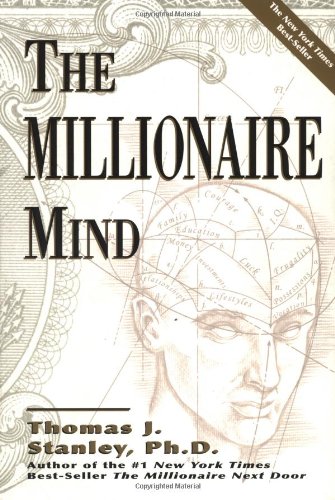The Millionaire Mind by Thomas J. Stanley did not win the acclaim of its predecessor The Millionaire Next Door, but I consider it an equally valuable resource for personal financial education.
As with The Millionaire Next Door, which I reviewed earlier, Stanley conducts a type of ethnographic study of multi-millionaires, surveying them on attitudes, life experience, purchasing behavior, and habits of mind.1
A number of these insights stuck with me throughout the years, a good indication to me that Stanley’s got quite a bit to offer.
Small Business Owners
Many millionaires own their own businesses, and they typically either started it or continued a family-owned enterprise. Further, their businesses often lack the prestige of professions celebrated in the popular press.
Stanley takes pains, for example, to highlight the story of Mr. Richard, a junk-yard operator worth over $10 million, with an annual salary above $700,000. Avoiding the prestige professions is not only an accident, Stanley argues, but a strategy to avoid competing with other very smart people. Stanley returns frequently to this theme of wealth accumulation through entrepreneurship, which, of course, I believe in myself.
Not the best students
Interestingly, Stanley claims that his cohort of millionaires tends to be made up of people who received Bs and Cs in high school and college – but who found a vocation, after their school years ended, at which they excelled.
The traditional A students, he points out, tend to seek out competitive, prestigious professions such as law and medicine that require a flawless educational transcript. Many lawyers and doctors earn generous salaries but frequently do not join the ranks of multi-millionaires. There can be a huge difference at the high end of wealth creation between a good salary and ownership of a profitable business.
Cheap Cheap Cheap
Stanley’s favorite theme – sounded throughout The Millionaire Next Door as well as The Millionaire Mind, is that wealthy people are frugal.
This makes sense, as of course the less you pay for everything – from your car to your morning coffee – the more you have left over in net worth. On the other hand, much of the Advertising Infotainment Industrial Complex is dedicated to convincing us that the more you have, the more you need to show what you have, through a fancy watch2 or a second home, or by hiring Rod Stewart for your 60th Birthday.
Other insights
Stanley describes other characteristics of multi-millionaires. They tend to be long-term married (and only once), they tend to have iconoclastic ideas (somewhat), they show courage and respond well to setbacks, they seize business opportunities that others did not see, and they tend to reduce their borrowing once they’ve achieved some financial success.
All sounds like reasonable advice to me.
Post read (8656) times.
- Once again a scientist versed in the scientific method could easily critique his approach. He sent out surveys to a randomly selected number of households in certain zip codes likely to have millionaires. From there he received 733 completed responses from households with at least $1 million in net worth. Problem #1 – Survivorship bias. Just because these folks have a $1 million+ net worth, doesn’t negate the fact that many other people, or even a majority of other people, with exactly the same characteristics, are not millionaires. We can’t know how powerful the effect of these variables are without a study designed with a ‘control group’ to correct for survivorship bias. Problem #2 – Methodological tautology. Stanley targeted particular zip codes on purpose. He then makes comments about the types of neighborhoods millionaires live in, such as the fact that many millionaires live in older, well-established neighborhoods. That’s probably true, but you can’t make a scientific correlation between neighborhoods and millionaires if you picked the neighborhoods first! Nevertheless, I still think Stanley’s insights have the ring of truth, if not the scientific gold standard of proof. ↩
- “You never actually own a Patek Philippe, you merely look after it for the next generation.” Also, it even tells time! Similar to, although not quite as well as, a digital watch that is essentially free at this point. Or like the free time-keeper that comes with your mobile communication device. ↩


